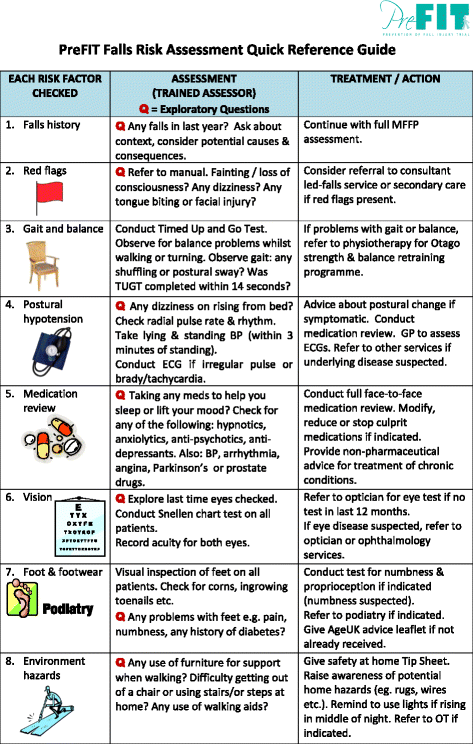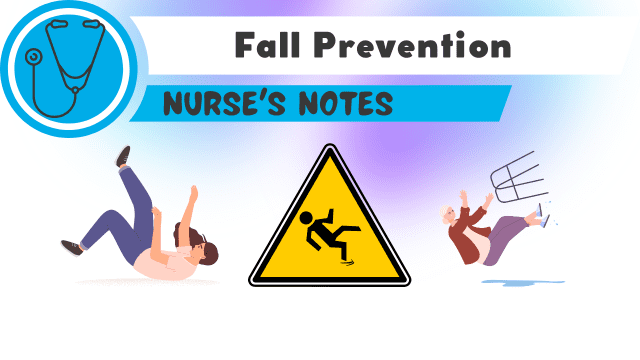Dementia Fall Risk Things To Know Before You Get This
Dementia Fall Risk Things To Know Before You Get This
Blog Article
The Ultimate Guide To Dementia Fall Risk
Table of ContentsNot known Details About Dementia Fall Risk All About Dementia Fall RiskSome Known Facts About Dementia Fall Risk.The 7-Minute Rule for Dementia Fall RiskThe 3-Minute Rule for Dementia Fall Risk
You may be anxious due to the fact that you have actually had a loss prior to or due to the fact that you have actually noticed you're starting to feel unsteady on your feet. You could have noticed changes to your health, or simply really feel like you're decreasing a little. Whatever the factor, it isn't uncommon to end up being mindful and shed confidence, and this can stop you doing the important things you utilized to do and make you really feel extra separated.If you have actually had an autumn or you've started to really feel unstable, tell your physician even if you feel great or else. Your physician can inspect your balance and the way you stroll to see if renovations can be made. They might be able to refer you for a falls risk assessment or to the drops avoidance service.
This info can be obtained through meetings with the person, their caregivers, and a testimonial of their clinical records. Begin by asking the individual concerning their background of falls, consisting of the regularity and scenarios of any type of current drops. Dementia Fall Risk. Ask about any mobility troubles they might experience, such as unstable or difficulty strolling
Conduct an extensive review of the individual's medications, paying specific attention to those understood to boost the risk of falls, such as sedatives or drugs that lower high blood pressure. Determine if they are taking numerous medicines or if there have actually been recent changes in their medicine regimen. Review the individual's home setting for prospective hazards that might increase the danger of falls, such as bad lighting, loosened carpets, or lack of grab bars in the washroom.
Some Of Dementia Fall Risk
Overview the individual through the autumn risk evaluation form, describing each question and tape-recording their reactions precisely. Determine the total risk rating based on the feedbacks given in the analysis kind.
Regularly check the person's progress and reassess their threat of falls as needed. Give continuous education and assistance to promote safety and security and decrease the threat of falls in their daily living activities.
Several research studies have actually shown that physical treatment can help to decrease the threat of falling in grownups ages 65 and older. In a brand-new study (that considered falls threat in women ages 80 and from this source older), researchers determined the economic effect of picking physical therapy to avoid drops, and they found that doing so saves $2,144, consisting of all the hidden expenses of your time, discomfort, missed life events, and the bucks spent for services.
Dementia Fall Risk Things To Know Before You Buy
Inspecting your heart price and blood pressure dimensions at remainder and while you change settings (from sitting or lying to standing). A basic test of your thinking (cognitive) abilities. Examining your equilibrium, strength, and walking capacity. A straightforward vision test. Evaluating your feet and shoes. A home security assessment. Based upon the evaluation results, your physical therapist will certainly develop a plan that is tailored to your details needs.
Older adults that have problem strolling and chatting at the same time are at a higher danger of falling. Dementia Fall Risk. To assist increase your security throughout day-to-day tasks, your physiotherapist might develop a training program that will certainly test you to keep standing and walking while you do another task. Instances include strolling or standing while counting backward, having a discussion, or bring a bag of groceries
Establish objectives for boosting their physical activity. Exercise a lot more to raise their toughness and equilibrium. These programs often are led by volunteer trainers.
How Dementia Fall Risk can Save You Time, Stress, and Money.

Measles, or rubeola, is an extremely transmittable, acute viral contagious illness caused by the measles infection. Some people assume of measles as just a rash and high temperature that clears in a couple of days; nevertheless, measles can cause severe health issues, specifically in children younger than 5-years-old. The finest defense versus measles is the measles, mumps, and rubella (MMR) vaccine.
Autumns are a typical source of injury amongst older grownups. According to the CDC, in one year alone, fall-related injuries added to over $50 billion in medical costs (Dementia Fall Risk). In healthcare facility setups, older grownups go to specifically high threat of drops because their reduced movement from being restricted to a space or bed.
Getting My Dementia Fall Risk To Work

She has no history of falls, her stride is stable, and she invalidates with no problems. The previous registered nurse states that she calls for aid to the restroom when she needs to go.
Instances of common loss interventions/measures include: Guaranteeing a person's crucial products are available. Putting the individual's bed rails up with the alarm on. Helping a patient while they're standing up from bed. Beyond recognizing how to utilize the Johns Hopkins Fall Danger Assessment Tool, it is very important that centers include its use right into a more detailed loss prevention strategy.
Report this page